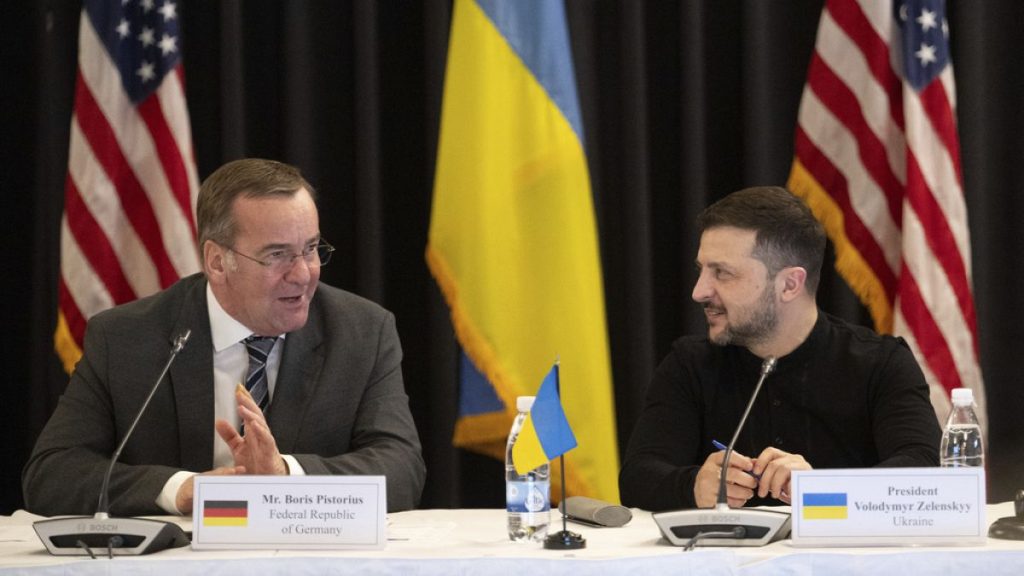German Defence Minister Boris Pistorius reaffirmed Germany’s unwavering commitment to supporting Ukraine’s defense, regardless of the outcome of the upcoming federal elections in February. Speaking at the Ukraine Defence Contact Group meeting in Ramstein, Pistorius emphasized the continuity of German aid, a crucial reassurance for Ukraine as it faces ongoing conflict. This pledge underscores Germany’s recognition of the vital role it plays in bolstering Ukraine’s defense capabilities and maintaining stability in the region. The commitment transcends domestic political considerations, demonstrating a steadfast resolve to stand by Ukraine in its time of need.
As a tangible demonstration of this commitment, Germany will deploy two Patriot missile units and 200 soldiers to Poland in the coming weeks. This deployment, part of a NATO mission, aims to strengthen the defense infrastructure protecting a key logistics hub crucial for supplying aid to Ukraine. The six-month deployment highlights Germany’s proactive approach to regional security and its willingness to contribute to collective defense efforts. This move not only reinforces NATO’s presence in the region but also sends a clear message of deterrence to potential adversaries. The deployment also underscores the interconnectedness of European security and the importance of collaborative defense initiatives.
While the Ramstein meeting didn’t feature a large-scale aid package announcement, Pistorius outlined specific contributions to Ukraine’s defense capabilities. Germany will provide three additional IRIS-T SLM and SLS air defense systems, along with 13 more Gepard tanks. Furthermore, Germany will supply additional missiles for the IRIS-T systems in the near future, diverting resources originally intended for the German Bundeswehr. This decision demonstrates Germany’s prioritization of Ukraine’s urgent defense needs and its willingness to adjust its own military plans to support its ally. The transfer of these advanced air defense systems and tanks will significantly enhance Ukraine’s ability to protect its airspace and ground forces.
The impending Trump presidency loomed large over the Ramstein meeting, raising concerns about the future of the Ukraine Defence Contact Group. Pistorius stressed the importance of continuing these meetings under the new US administration, acknowledging the vital role they play in coordinating international support for Ukraine. While the continuation of the meetings in their current format is uncertain, Pistorius insisted that the collaborative effort must persist in some form, ensuring ongoing coordination and support for Ukraine. This reflects a broader concern about the potential shift in US foreign policy under Trump and the implications for transatlantic cooperation on Ukraine.
Ukrainian President Volodymyr Zelenskyy expressed his hope for continued and strengthened cooperation with the incoming US administration. Recognizing the potential challenges and opportunities presented by the leadership transition, Zelenskyy emphasized the need for even closer collaboration to achieve better outcomes. In a recent podcast, Zelenskyy highlighted Trump’s potential influence in efforts to stop Putin, indicating a belief that Trump could play a pivotal role in resolving the conflict. This statement reveals Zelenskyy’s strategic approach to navigating the changing political landscape and his willingness to engage with different actors to achieve peace.
Tymofiy Mylovanov, former Ukrainian Minister of Economic Development, offered insights into the potential direction of the Trump administration’s approach to the conflict. He predicted a concerted effort by the Trump administration to broker a peace deal without compromising Ukraine’s interests. Mylovanov anticipates continued US aid as a means of maintaining leverage over Putin and ensuring the enforcement of any potential agreement. He also foresees an increased role for the EU and Germany in supporting Ukraine under a Trump presidency, highlighting Trump’s previous statements suggesting that Ukraine is primarily a European responsibility. This analysis suggests a complex interplay of factors will shape the future of the conflict and the involvement of various international actors.

